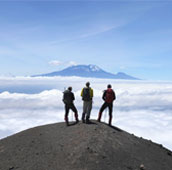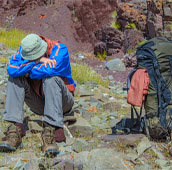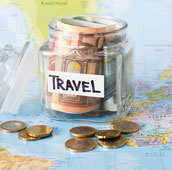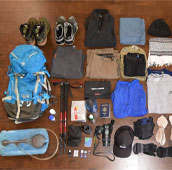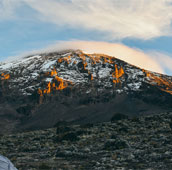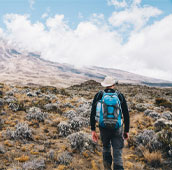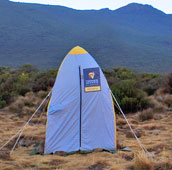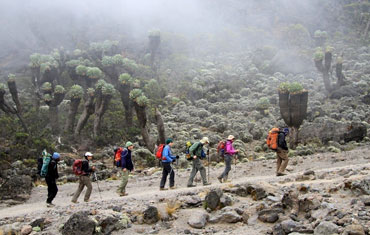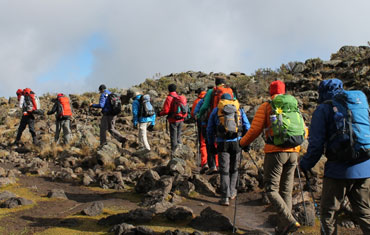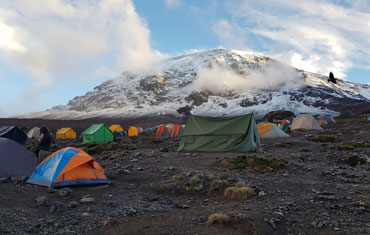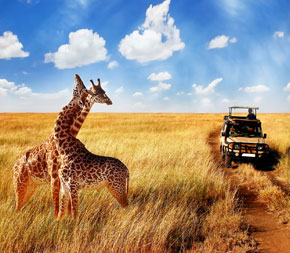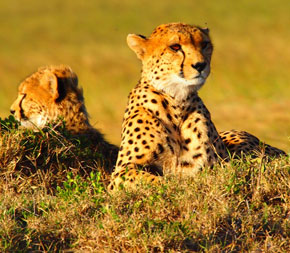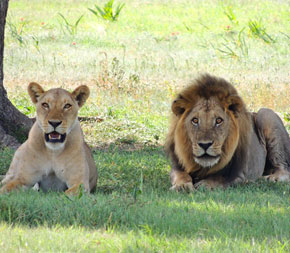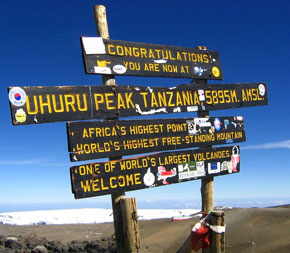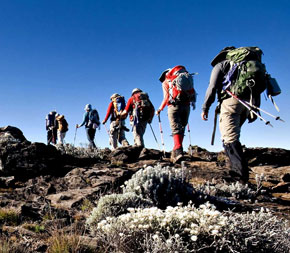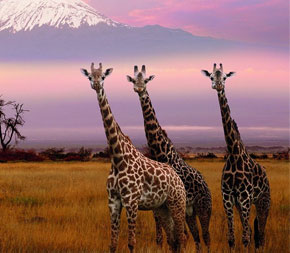Kilimanjaro FAQst
Kilimanjaro FAQs
- The best time to travel to Tanzania is between the end of June and the middle of October.
- Even though it is possible to climb Kilimanjaro in the main rainy season, we strongly discourage anyone from doing so.
- The warmest time with the least amount of rainfall is between December and February. The main rainy season is from March until the beginning of June.
- Between June and October the temperatures are moderate with almost no rainfall. November is regarded as the small rainy season and daily, short rainfalls with cloudy views are common.
When Is The Best Time To Climb Kilimanjaro?
- On the Machame and Lemosho routes climbers overnight in two-man mountain tents equipped with sleeping mats. Single climbers often share a tent with another group member of the same gender, but single tents can be requested at extra cost.
- The Marangu route is the only route where climbers overnight in basic mountain huts.
Where Will I Sleep?
- Meals are included as mentioned in the itinerary. For breakfast, there will be a choice of fruit, scrambled eggs, porridge, toast, jam, hot chocolate, coffee, or tea.
- For lunch you will be provided with a lunch box with sandwiches, boiled eggs, chicken, etc. Lunch is enjoyed en route when we stop for a picnic-style lunch.
- For dinner you will enjoy soup and bread followed by meat or poultry along with starch (i.e. mashed potatoes, French fries, pasta or rice) as well as vegetables.
- Breakfast and dinner are served in a “dining” tent equipped with a table and chairs.
Which Meals Are Provided And What Type Of Food Can I Expect?
How Do I Cope With The Altitude?
Almost everyone that climbs Kilimanjaro will be affected by the altitude in one way or another. Top athletes are just as much at risk of suffering from high altitude as climbers who are out of shape. Headaches, extreme fatigue, loss of appetite, and nausea are all signs of possible mountain sickness. Symptoms are mostly mild, enabling you to continue your trek, and only in very few instances are symptoms more acute, making an immediate descent unavoidable.
- The sick or injured climber will be tended to by one of the guides and depending on the situation, that climber will be taken down to a lower altitude where they can rest and recuperate.
- The rest of the group can continue up the mountain with the other guide(s). Again, depending on the situation, everyone will later join up at the lower altitude for the final descent.
- Hiking boots with spare laces
What Happens If Someone Else Gets Sick Or Injured?
Should I Bring Some Extra Cash?
Yes, you should bring some extra money for tips, souvenirs, and other personal expenses. If you are bringing USD, please make sure that the bills are printed after 2008 as any earlier printed ones will not be accepted.
- Lead guide: 12 – 18 USD per day
- Assistant guide: 8 – 12 USD per day
- Cook: 8 – 10 USD per day
- Waiter: 7 – 9 USD per day
- Porter: 6 – 7 USD per day
What About Tipping?
Tips for the mountain crew are common practice. Tips form a large portion of the mountain crew’s income and it is highly appreciated. Without their hard work and assistance, most climbers will never be able to climb Kilimanjaro.
Below are some recommendations (per group, not per person):
- Probably most travelers can obtain a visa upon arrival at the airport or when crossing the border into Tanzania.
- It is every traveler’s own obligation to check the latest visa regulations with their respective embassies.
- Every traveler is responsible to be in the possession of the required travel documents.
Do I Need A Visa For Tanzania?
- Officially, no vaccinations are required by the Tanzanian health department. Tanzania is however a yellow fever region and therefore we have to advise that you speak to your doctor or medical practitioner about your travel plans and follow their recommendations.
- You should also consult your doctor or medical practitioner about other common shots such as Tetanus, Diphtheria, Polio, and Hepatitis A & B.
- Tanzania is in a Malaria area but there are no mosquitoes at high altitudes. It is your own choice if you wish to take any precautionary medication, but again we suggest that you consult your doctor or travel clinic on this matter.
What About Vaccinations And Malaria?
Top Related Kilimanjaro Packages
Tailor- Made Tour Section
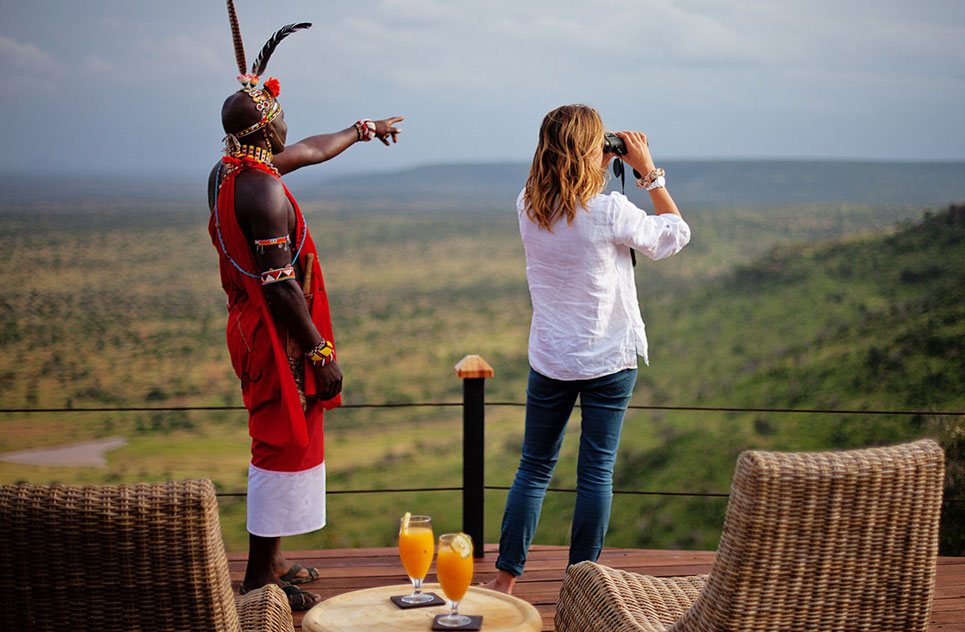
Helping You to find a better value Safari
Whether you are ready for Tanzania Safari or Kilimanjaro Climb or Zanzibar Beach Holiday for a few days, our experts will create an itinerary fully tailored to your wishes.
Tailor-Made Safari Experiences

